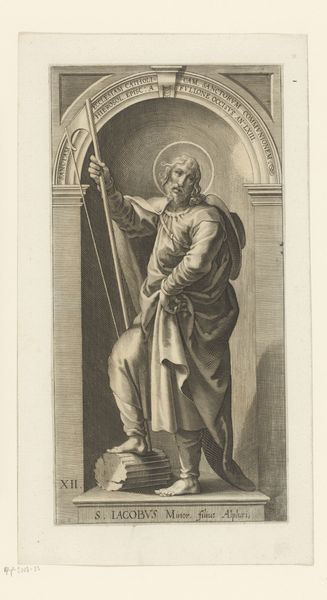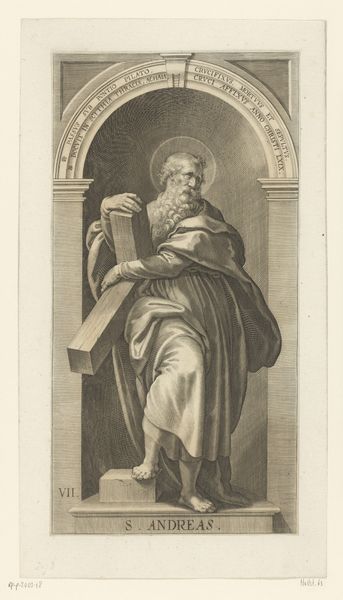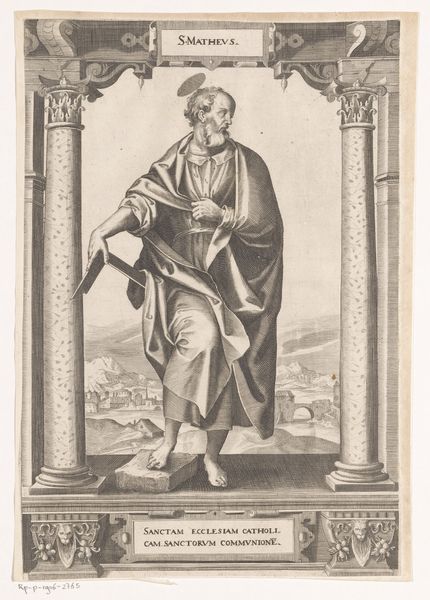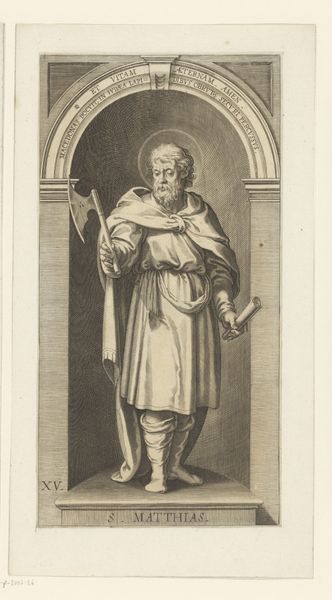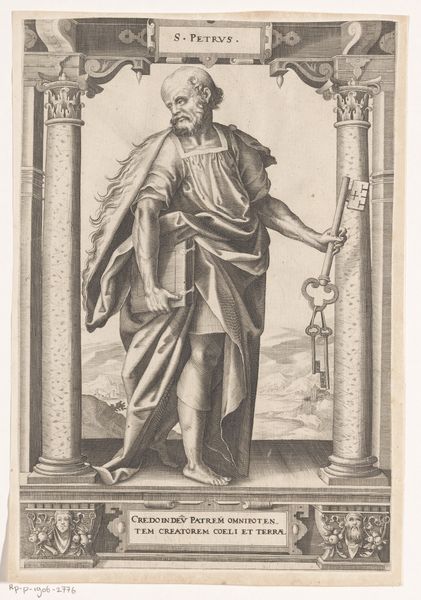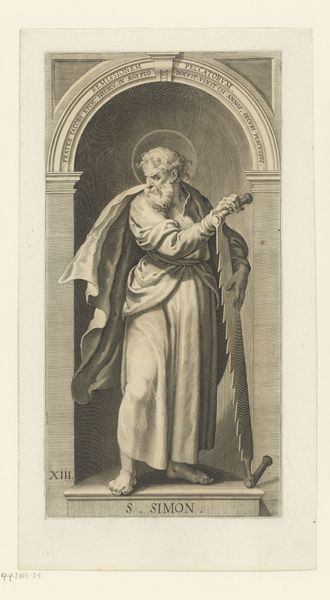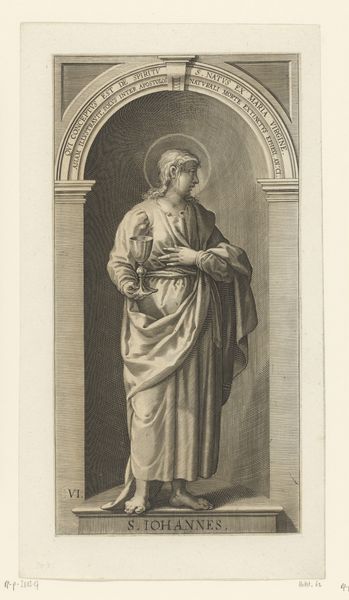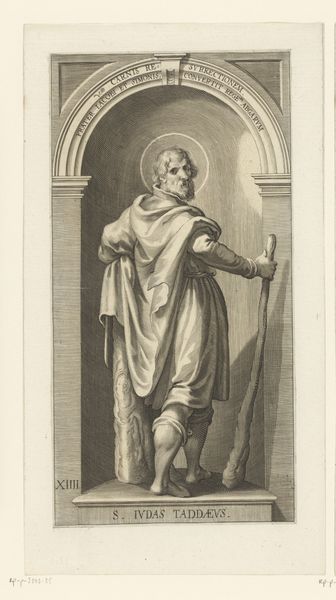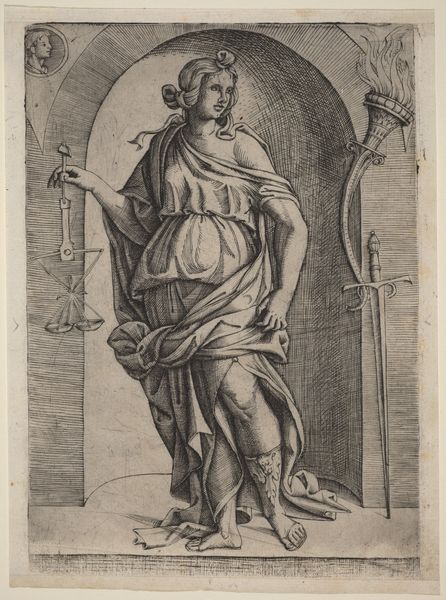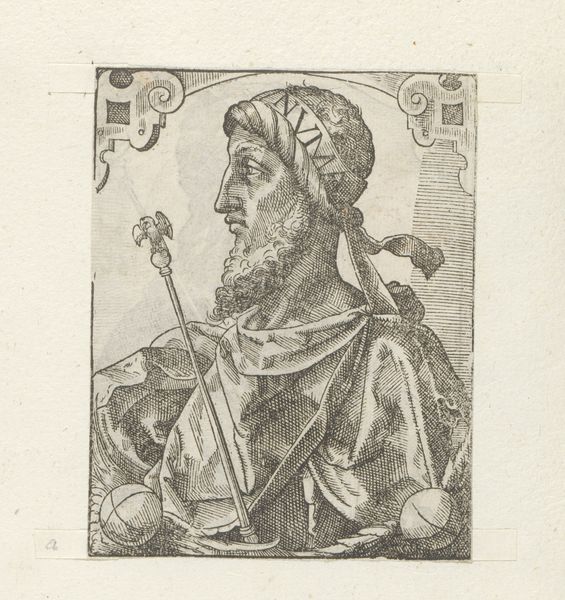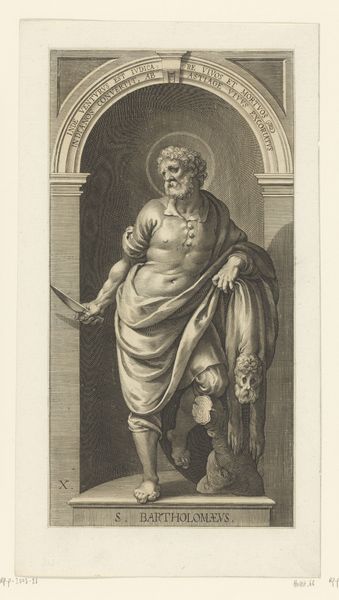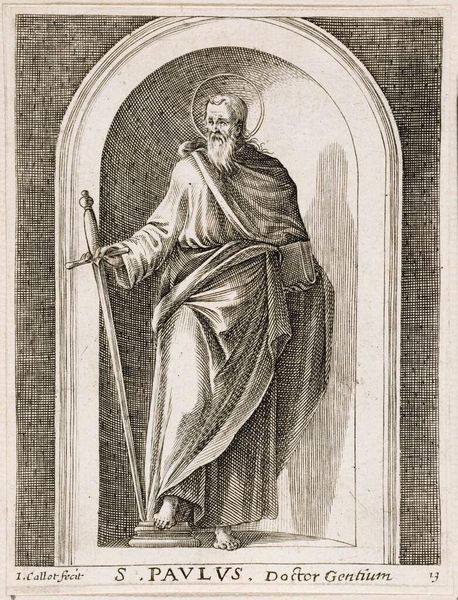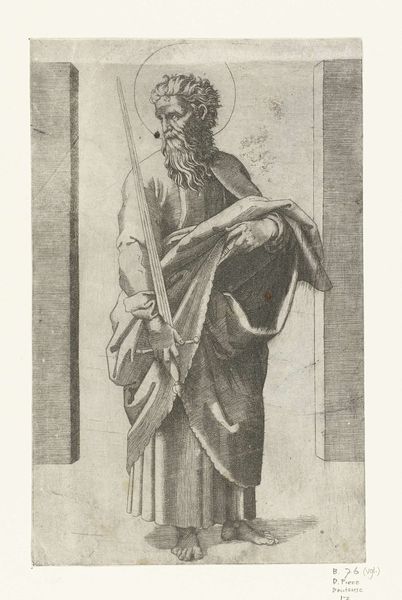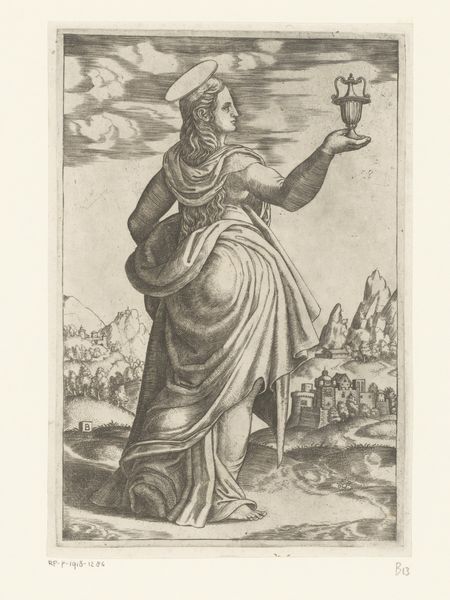
drawing, print, engraving
#
portrait
#
drawing
#
baroque
# print
#
history-painting
#
engraving
Dimensions: height 301 mm, width 154 mm
Copyright: Rijks Museum: Open Domain
This is H. Matteüs, made by Lucas Kilian around the early 17th century using engraving techniques. Kilian used a burin to carve lines into a copper plate, which was then inked and printed onto paper. The image displays a high level of skill and control, with fine lines creating a sense of depth and texture, particularly in the drapery and the saint’s face. This printmaking process allowed for the mass production and distribution of images, playing a crucial role in disseminating religious and cultural ideas. The production of prints like this one involved a significant amount of labor, both in the skilled handwork of the engraving and the more mechanical processes of printing. Consider the social context, where the rise of print culture democratized access to images, but also depended on a system of workshops, apprenticeships, and market exchange. Paying attention to these material and social dimensions helps us appreciate how the artistry of printmaking intersects with the broader currents of commerce and culture.
Comments
No comments
Be the first to comment and join the conversation on the ultimate creative platform.
